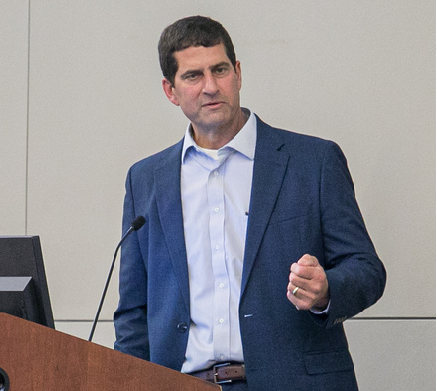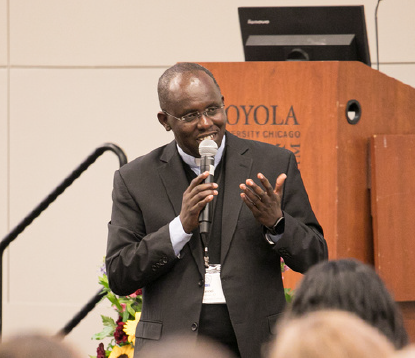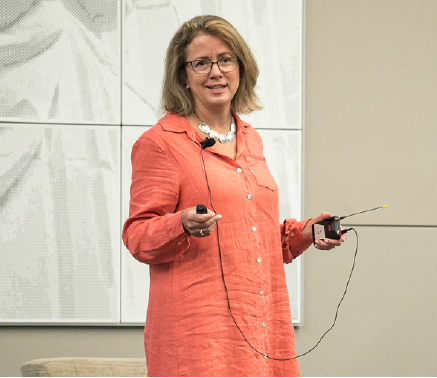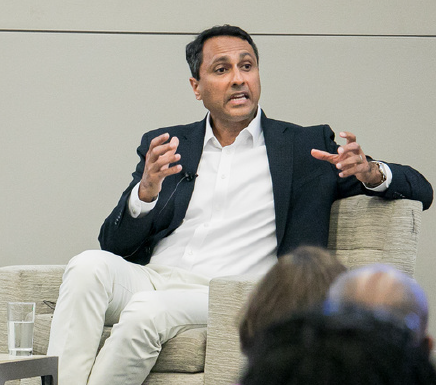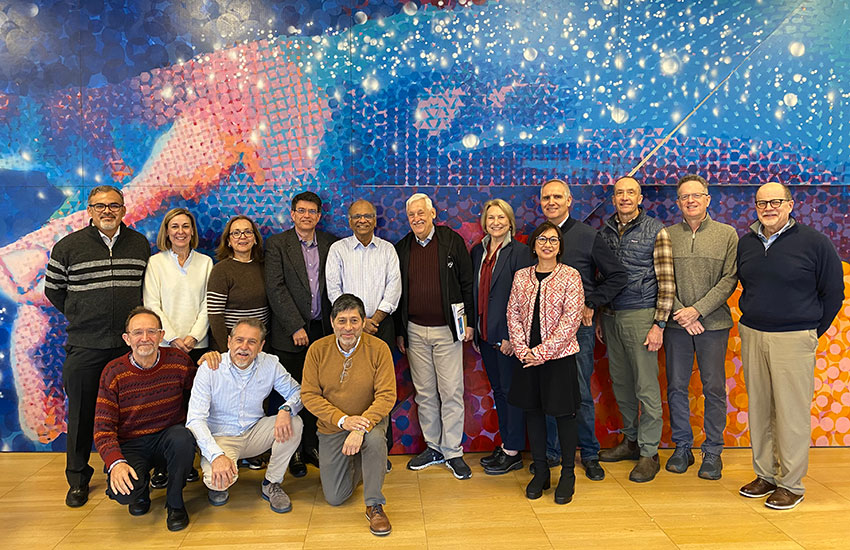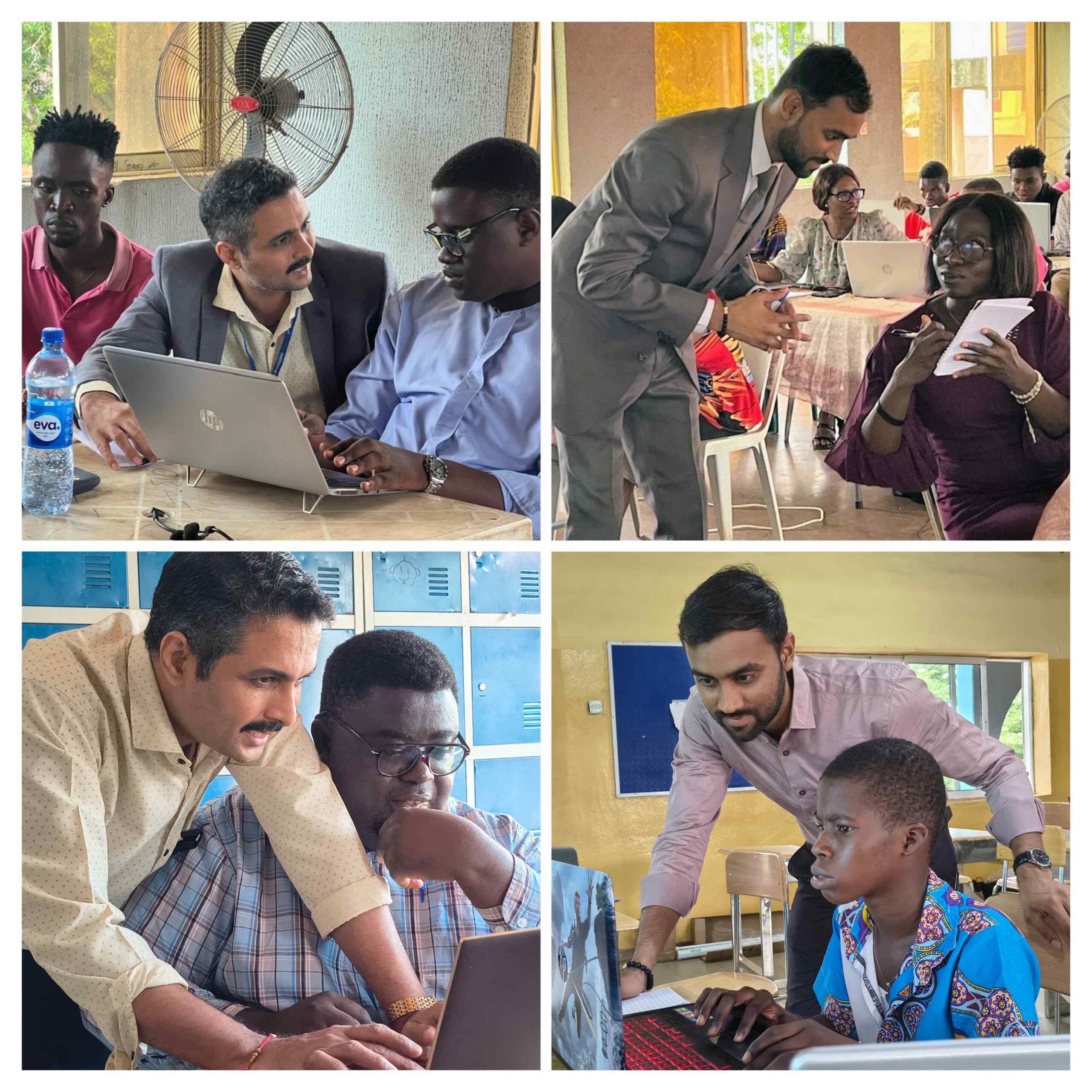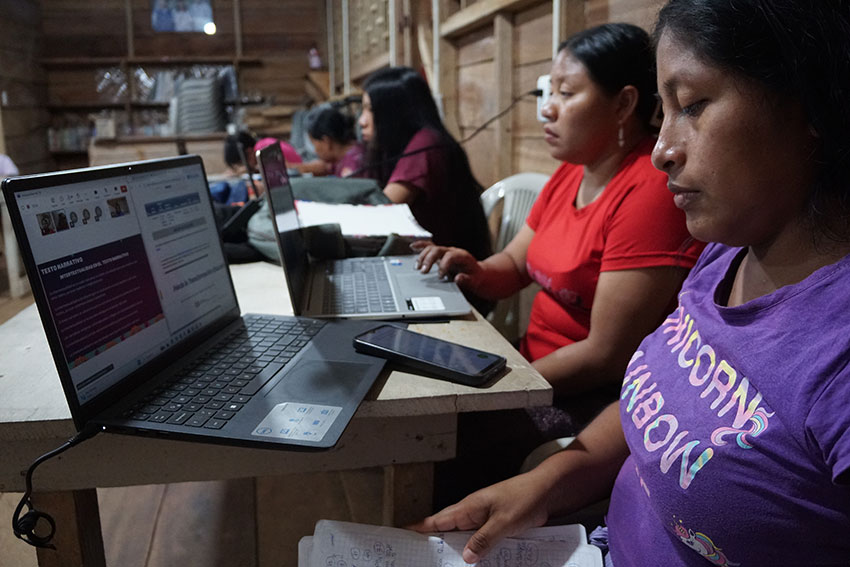TOWARD A HOPE-FILLED FUTURE: REFLECTIONS ON AJCU ASSEMBLY ‘24
Joseph DeFeo, Executive Director, Ignatian Colleagues Program
After more than two years of planning, a few thousand e-mails, many (many) Zoom sessions and other countless meetings, the AJCU Faith, Justice & Reconciliation Assembly came to fruition from July 16-19, 2024, at Loyola University Chicago. Attended by more than 360 faculty, administrators and staff, our gathering included representatives from 30 Jesuit higher educational institutions across the United States, Canada, and Peru, and many other friends and partners from the Jesuit Conference of Canada and the United States, all U.S. Jesuit Provinces, Alpha Sigma Nu, Ignatian Solidarity Network, Jesuit Refugee Service/USA, Loyola Press, and other organizations. Faculty participation accounted for more than one-third of attendees, marking a significant and welcome addition to the event. With nearly one-third of all attendees serving on either a commission or presentation team, a shared sense of ownership and pride could be felt throughout the Assembly. What a gift it was to gather such a talented and generous community who care so deeply about Jesuit higher education and the work of faith, justice, and reconciliation.
Rooted In Mission
A running theme throughout the Assembly, “What do we owe” (to God, country, Church), stems from St. Ignatius’ Spiritual Exercises through which one recognizes the overabundant love and grace of God. In gratitude, one naturally seeks to respond through one’s service to others and asks, “What can I do,” i.e., “What do we ‘owe.”
Each plenary speaker rooted their remarks in our Jesuit and Catholic tradition, connecting us to the Spiritual Exercises, the Catholic Intellectual Tradition, Catholic Social Teaching, and the Gospels. They reminded us that our tradition holds key resources as we engage in the work of justice within the context of faith and reconciliation, which includes a hopefulness that is never diminished.
Within a theological framework, our first plenary speaker, Rev. Marcel Uwineza S.J., president of Hekima College in Nairobi, Kenya, shared his incredibly painful and hopeful story of survival, grace of conversion, and reconciliation as he addressed what we “owe” God, ourselves, and one another. Our second plenary speaker, Interfaith America founder and president Eboo Patel, referencing the visionary work of Rev. John Courtney Murray S.J., shared his experiences regarding the challenges and opportunities that pluralism brings, and offered several campus practices for civic pluralism in relation to what we “owe” our country.
And our third plenary speaker, Anna Bonta Moreland, the Anne Quinn Welsh Endowed Director of the Villanova University Honors program, reminded us that as Jesuit institutions, we are part of the Church, so what we “owe” relates to how we serve our students. Noting that students today are struggling more than ever before, Moreland paired three major challenges with Ignatian strategies: Choice Paralysis / Ignatian discernment; Lack of Leisure / Cura Personalis; and Epidemic of Loneliness / Ignatian Detachment.
Each of the six Commissions, consisting of more than eighty-five faculty and staff who have been working together for the past eighteen months, provided examples of adapting our Jesuit and Catholic mission to the realities facing Jesuit higher education today. Some are well advanced and have resources ready to share, while others are in earlier stages of development. Some highlights include:
· Proposals for an online certificate program on Ignatian pedagogy
· The creation of a Democracy Examen
· Colleges and universities signing on to the Laudato Si’ Action Platform
· Increasing the number of institutions offering Jesuit prison education
· Engaging the painful institutional history of slavery and the oppression of indigenous peoples
· A discernment tool for institutional policies
· A facilitator’s guide for serving the spiritual and mental health of students.
More than forty workshops, roundtables, lightning rounds, and poster sessions provided examples of ways that our schools are adapting the mission to meet needs on campus, at local and regional levels. A panel discussion regarding Israel/Gaza, workshops on Ignatian pedagogy, poster sessions, and many others illustrated a rootedness and depth of engagement with our Jesuit and Catholic tradition.
Going Forward: A Hope-Filled Future
The depth of content and collaborative efforts among the Commissions and presentation teams, and their generosity of spirit, were powerful examples of the riches within our institutions and across our AJCU network. In the months ahead, AJCU will review evaluations, gather commission co-chairs and others to consider what was learned, and map out next steps. We will also remain attuned to identifying new areas affecting Jesuit higher education over the next few years as we plan for Assembly 2027, which Loyola University Maryland has so graciously offered to host (dates TBD).
Encouraging institutions to send delegations was intentional. Delegations serve as representatives, as witnesses of an event. More important than AJCU’s efforts, Assembly delegates have the responsibility to bring back to their campuses what they learned, reflect on their experiences individually, with fellow delegates, share them widely among campus colleagues, AJCU networks and others, and consider how to respond. Through actions like these, delegations and campus colleagues assure that the work of faith, justice, and reconciliation continues beyond the Assembly. As I reflect on the Assembly, many consolations keep returning to me: the energy, sense of community, and hopefulness of spirit that was present during our time together. What struck me was how these endured throughout our gathering. One of my deepest hopes for the Assembly was to contribute toward the building up our AJCU network, not just of experts doing important work (which they clearly are), but also fostering our community of care and generosity for and with one another.
In both large and small settings, listening to presenters share their incredible expertise and bounty of work with generosity and passion, witnessing so many in-depth conversations during and after sessions in hallways, coffee breaks, socials and meals, appreciating new and veteran colleagues welcoming one another, and delighting in the many smiles, handshakes, compassionate embraces, hugs and abundance of laughter, were all consolations and confirmations for me that our Assembly met its mark and that our AJCU network reflects well our belief in a hope-filled future as we continue the work of faith, justice and reconciliation. Rich is the harvest.

